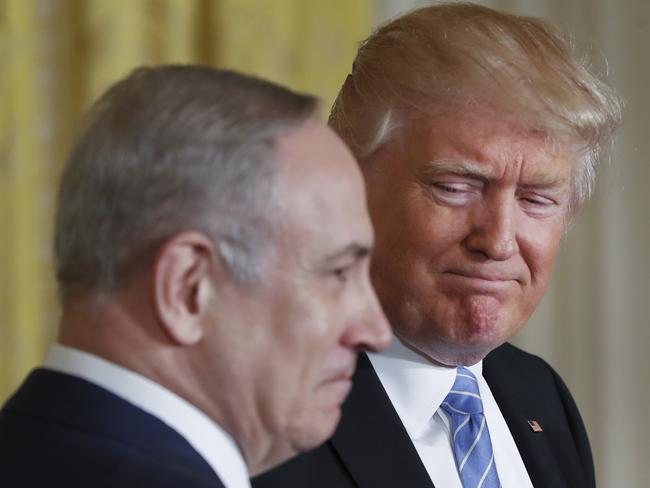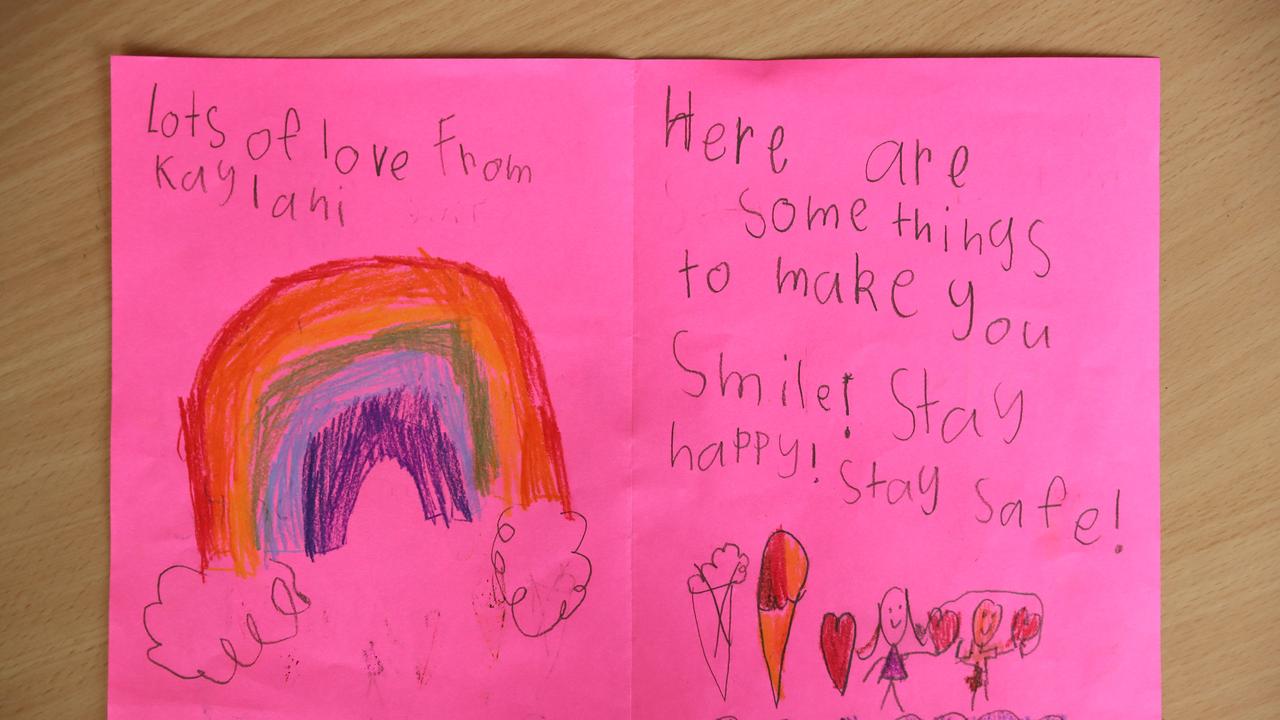Psychologists, psychiatrists express concern over Donald Trump’s mental health
ONE of America’s leading psychiatrists has slammed colleagues for trying to diagnose Donald Trump with a mental illness despite never meeting him.

DONALD Trump has been called a lot of names but this is different.
In the last few days, it’s not simply members of the public — disgruntled Democrats — firing pot shots between friends or over social media at the world’s most powerful man.
No, this time it’s respected medical professionals using opinion pages of one of the world’s biggest newspapers. But the conversation is anything but one-sided.
It started on Monday when 35 US psychiatrists, psychologists and social workers questioned their new president’s mental health.
In an open letter to The New York Times, the group wrote that they’ve been “silent” for too long.
“Silence from the country’s mental health organisations has been due to a self-imposed dictum about evaluating public figures,” Dr Lance Dodes and Dr Joseph Schachter wrote.
Dr Dodes is a retired assistant clinical professor of psychiatry at Harvard Medical School and Dr Schachter is a former chairmen of the International Psychoanalytic Association.
“This silence has resulted in a failure to lend our expertise to worried journalists and members of Congress at this critical time,” they wrote. “We fear that too much is at stake to be silent any longer.”
The “experts” described the President as having “an inability to tolerate views different from his own” and being susceptible to “rage reactions”.
“His words and behaviour suggest a profound inability to empathise. Individuals with these traits distort reality to suit their psychological state, attacking facts and those who convey them (including) journalists and scientists.

“In a powerful leader, these attacks are likely to increase, as his personal myth of greatness appears to be confirmed. We believe that the grave emotional instability indicated by Mr Trump’s speech and actions makes him incapable of serving safely as President.”
But the professionals met their match when Allen Frances read the letter and decided to respond.
The emeritus psychiatrist at Duke University’s School of Medicine, a man who helped write the standard manual on psychiatric disorders, published a letter of his own the following day.
He said it was not only incorrect to diagnose Mr Trump as mentally ill, but it was irresponsible and insulting to those diagnosed with a mental illness.
“Fevered media speculation about Donald Trump’s psychological motivations and psychiatric diagnosis has recently encouraged mental health professionals to disregard the usual ethical constraints against diagnosing public figures at a distance,” Dr Frances wrote.
“They have sponsored several petitions and a letter to The New York Times suggesting that Mr Trump is incapable, on psychiatric grounds, of serving as President.
“Most amateur diagnosticians have mislabeled President Trump with the diagnosis of narcissistic personality disorder. I wrote the criteria that define this disorder, and Mr Trump doesn’t meet them.”
He admitted the President “may be a world-class narcissist” but said such a personality train does not equate to a mental illness.
“He does not suffer from the distress and impairment required to diagnose mental disorder. Mr Trump causes severe distress rather than experiencing it and has been richly rewarded, rather than punished, for his grandiosity, self-absorption and lack of empathy.
“It is a stigmatising insult to the mentally ill (who are mostly well behaved and well meaning) to be lumped with Mr Trump (who is neither).”
He continued, lashing the letter writers for what he called “psychiatric name-calling”.
“It’s a misguided way of countering Mr Trump’s attack on democracy,” Dr Frances wrote.
“He can, and should, be appropriately denounced for his ignorance, incompetence, impulsivity and pursuit of dictatorial powers.
“His psychological motivations are too obvious to be interesting, and analysing them will not halt his headlong power grab. The antidote to a dystopic Trumpean dark age is political, not psychological.”
The President’s mental capacity has been challenged before. A change.org petition encouraging mental health professionals to led their support to a campaign to unseat him has been signed more than 23,000 times.
Mr Trump has not responded to the letters.



